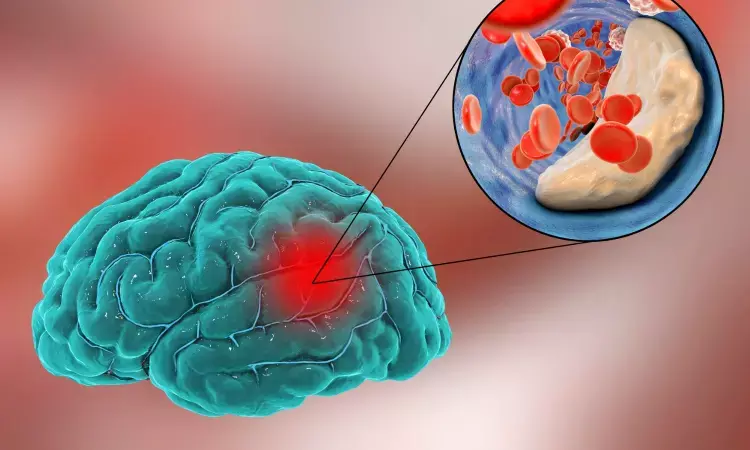- Home
- Medical news & Guidelines
- Anesthesiology
- Cardiology and CTVS
- Critical Care
- Dentistry
- Dermatology
- Diabetes and Endocrinology
- ENT
- Gastroenterology
- Medicine
- Nephrology
- Neurology
- Obstretics-Gynaecology
- Oncology
- Ophthalmology
- Orthopaedics
- Pediatrics-Neonatology
- Psychiatry
- Pulmonology
- Radiology
- Surgery
- Urology
- Laboratory Medicine
- Diet
- Nursing
- Paramedical
- Physiotherapy
- Health news
- Fact Check
- Bone Health Fact Check
- Brain Health Fact Check
- Cancer Related Fact Check
- Child Care Fact Check
- Dental and oral health fact check
- Diabetes and metabolic health fact check
- Diet and Nutrition Fact Check
- Eye and ENT Care Fact Check
- Fitness fact check
- Gut health fact check
- Heart health fact check
- Kidney health fact check
- Medical education fact check
- Men's health fact check
- Respiratory fact check
- Skin and hair care fact check
- Vaccine and Immunization fact check
- Women's health fact check
- AYUSH
- State News
- Andaman and Nicobar Islands
- Andhra Pradesh
- Arunachal Pradesh
- Assam
- Bihar
- Chandigarh
- Chattisgarh
- Dadra and Nagar Haveli
- Daman and Diu
- Delhi
- Goa
- Gujarat
- Haryana
- Himachal Pradesh
- Jammu & Kashmir
- Jharkhand
- Karnataka
- Kerala
- Ladakh
- Lakshadweep
- Madhya Pradesh
- Maharashtra
- Manipur
- Meghalaya
- Mizoram
- Nagaland
- Odisha
- Puducherry
- Punjab
- Rajasthan
- Sikkim
- Tamil Nadu
- Telangana
- Tripura
- Uttar Pradesh
- Uttrakhand
- West Bengal
- Medical Education
- Industry
Indobufen valuable option for secondary stroke prevention among patients intolerant to Aspirin

According to a study published in The Lancet Neurology, "Indobufen versus aspirin in patients with acute ischaemic stroke in China (INSURE): a randomised, double-blind, double-dummy, active control, non-inferiority trial” by lead researcher Yuesong Pan et al., researchers have said that similar to Aspirin, indobufen blocks platelet aggregation. This reduces the risk of bleeding. Indobufen was not found to be noninferior to aspirin in patients with moderate to severe ischaemic stroke. Our study results do not support using indobufen for secondary stroke prevention in such patients, they wrote.
Explaining study background, researchers from the Department of Neurology, Beijing Tiantan Hospital, Capital Medical University, Beijing, China, said that Aspirin is recommended for secondary stroke prevention in patients with a history of moderate-to-severe ischaemic Stroke. It causes gastrointestinal intolerance and bleeding. In some countries, Indobufen is used as an alternative antiplatelet agent despite a need for more data and clinical trials for this indication.
Considering this background, researchers in the present study hypothesised that indobufen is non-inferior to Aspirin in reducing the risk of new Stroke at 90 days in patients with a history of moderate-to-severe ischaemic Stroke.
The conclusive study points are:
- The trial was conducted at 163 tertiary and district general hospitals in China.
- Eighty-four thousand ninety-three patients were screened.
- Participants in the indobufen and aspirin groups were2715 and 2723, respectively.
- The age of participants was 18–80 years.
- Researchers assigned participants 1:1 (randomisation sequence computer generated) within 72 h of the onset of symptoms to receive either indobufen (100 mg tablet twice per day) or Aspirin (100 mg tablet once per day) for 90 days.
- The random code was assigned to investigators by Masked local investigators to patients in ascending order.
- The treatment kit was provided corresponding to the random code.
- The outcomes measured were the new Stroke and severe or moderate bleeding within 90 days.
- Safety analyses were done in the safety-analysis population.
- The researchers assessed the non-inferiority of indobufen versus Aspirin using the one-sided upper limit of the 95% CI of the hazard ratio (HR) with a prespecified non-inferiority margin of 1·25.
- In the indobufen and aspirin groups, Stroke occurred within 90 days in 213 and 175 patients, respectively.
- Moderate or severe bleeding occurred in 18 and 28 patients, respectively.
- Adverse events occurred in 666 and 679 patients, respectively.
They said, “We found that indobufen is not non-inferior to aspirin.”
We do not support indobufen use for secondary stroke prevention in patients with moderate-to-severe ischaemic Stroke.
As acknowledged, the research received funding from Hangzhou Zhongmei Huadong Pharmaceutical and the Chinese Academy of Medical Sciences Innovation Fund for Medical Sciences.
Further reading:
https://www.thelancet.com/journals/laneur/article/PIIS1474-4422(23)00113-8/fulltext#%20
BDS, MDS in Periodontics and Implantology
Dr. Aditi Yadav is a BDS, MDS in Periodontics and Implantology. She has a clinical experience of 5 years as a laser dental surgeon. She also has a Diploma in clinical research and pharmacovigilance and is a Certified data scientist. She is currently working as a content developer in e-health services. Dr. Yadav has a keen interest in Medical Journalism and is actively involved in Medical Research writing.
Dr Kamal Kant Kohli-MBBS, DTCD- a chest specialist with more than 30 years of practice and a flair for writing clinical articles, Dr Kamal Kant Kohli joined Medical Dialogues as a Chief Editor of Medical News. Besides writing articles, as an editor, he proofreads and verifies all the medical content published on Medical Dialogues including those coming from journals, studies,medical conferences,guidelines etc. Email: drkohli@medicaldialogues.in. Contact no. 011-43720751


